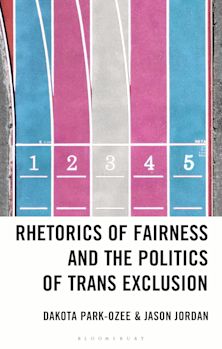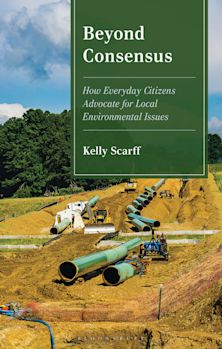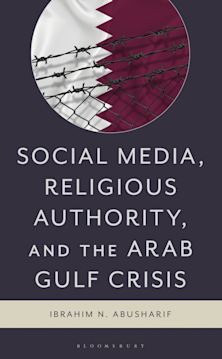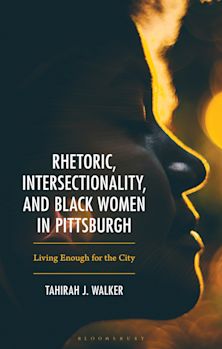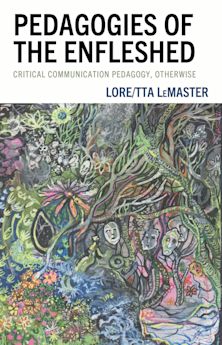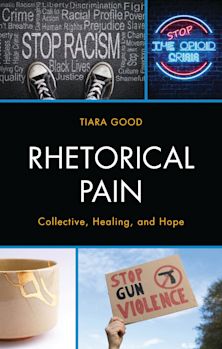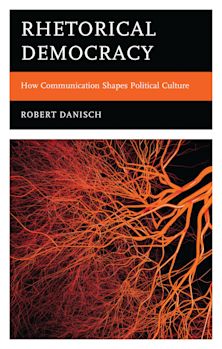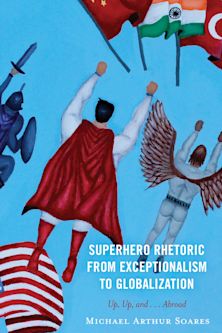- Home
- ACADEMIC
- Communication Studies
- Rhetoric
- The Rhetorical Legacy of Wangari Maathai
The Rhetorical Legacy of Wangari Maathai
Planting the Future
Eddah Mbula Mutua (Anthology Editor) , Alberto González (Anthology Editor) , Anke Wolbert (Anthology Editor) , Reynaldo Anderson (Contributor) , Ahmet Atay (Contributor) , Kundai V. Chirindo (Contributor) , Alberto González (Contributor) , Ellen W. Gorsevski (Contributor) , Rachel Alicia Griffin (Contributor) , Susan M. Kilonzo (Contributor) , Etsuko Kinefuchi (Contributor) , Wanjiru G. Mbure (Contributor) , Stella-Monica Mpande (Contributor) , Cleophas T. Muneri (Contributor) , Eddah Mbula Mutua (Contributor) , Gloria Nziba Pindi (Contributor) , D. L. Stephenson (Contributor) , Anke Wolbert (Contributor) , Franklin Nii Amankwah Yartey (Contributor)
The Rhetorical Legacy of Wangari Maathai
Planting the Future
Eddah Mbula Mutua (Anthology Editor) , Alberto González (Anthology Editor) , Anke Wolbert (Anthology Editor) , Reynaldo Anderson (Contributor) , Ahmet Atay (Contributor) , Kundai V. Chirindo (Contributor) , Alberto González (Contributor) , Ellen W. Gorsevski (Contributor) , Rachel Alicia Griffin (Contributor) , Susan M. Kilonzo (Contributor) , Etsuko Kinefuchi (Contributor) , Wanjiru G. Mbure (Contributor) , Stella-Monica Mpande (Contributor) , Cleophas T. Muneri (Contributor) , Eddah Mbula Mutua (Contributor) , Gloria Nziba Pindi (Contributor) , D. L. Stephenson (Contributor) , Anke Wolbert (Contributor) , Franklin Nii Amankwah Yartey (Contributor)
You must sign in to add this item to your wishlist. Please sign in or create an account
Description
This book honors the advocacy of Dr. Wangari Maathai, acclaimed environmentalist and the first African woman to receive the Nobel Prize for Peace. Dr. Maathai was a gifted orator who crafted messages that imagined new possibilities for human agency and social justice and who inspired action to protect our natural habitats. This collection explores the various strategies Maathai employed in her speeches to create memorable images and arguments for audiences in Kenya and around the world. Specifically, authors examine Maathai's use of storytelling, her creative use of metaphor and local cultural knowledge, and her use of sharp social-political analysis. Authors approach Maathai's rhetoric from both African and Western ways of knowing.
Table of Contents
Introduction: Wangari Maathai and Social Justice Advocacy
Alberto González, Eddah M. Mutua, and Anke Wolbert
Part I: Africa and the Rhetoric of the Green Belt Movement
Chapter One: Bantu Sociolinguistics in Wangari Maathai’s Peacebuilding Rhetoric
Kundai V. Chirindo
Chapter Two: Envisioning Peace and Reconciliation for Kenya: Wangari Maathai’s 2008 Peace Tent Opening Ceremony Address
Anke Wolbert
Chapter Three: The Rhetorical Potency of Storytelling: The Narrative Role of the Hummingbird in the Green Belt Movement
Franklin Nii Amankwah Yartey
Chapter Four: Heroic Transverser: A Rhetorical Analysis of Representations of Wangari Maathai
Wanjiru G. Mbure
Chapter Five: Wangari Maathai’s Rhetorical Vision: Empowerment through Education
Ahmet Atay
Chapter Six: The Green Belt Movement and Rhetoric of African Development Communication
Stella-Monica Mpande and Cleophas Tauri Muneri
Part II: Planting the Future: Sustaining Agency in and beyond the Green Belt Movement
Chapter Seven: The Rhetorical Significance of Maathai's Environmental Advocacy to Critical Intercultural Communication and Black Feminisms
Rachel Alicia Griffin and Gloria Nziba Pindi
Chapter Eight: Wangari Maathai and Mottainai: Gifting "Cultural Appropriation" with Cultural Empowerment
Etsuko Kinefuchi
Chapter Nine: Daughter of the Soil: Wangari Maathai’s Rhetorical Vision of Environmental Justice and Reform
Reynaldo Anderson and D.L. Stephenson
Chapter Ten: Growing the Next Generation: The Sustainability of Wangari Maathai’s Rhetoric of Environmentalism
Ellen W. Gorsevski
Chapter Eleven: Planting the Future: The Spiritual Legacy of Wangari Maathai
Eddah M. Mutua and Susan M. Kilonzo
References
Index
About the Editors
About the Contributors
Product details
| Published | 25 Oct 2018 |
|---|---|
| Format | Ebook (Epub & Mobi) |
| Edition | 1st |
| Extent | 244 |
| ISBN | 9781498571135 |
| Imprint | Lexington Books |
| Series | Transnational Communication and Critical/Cultural Studies |
| Publisher | Bloomsbury Publishing |
About the contributors
Reviews
-
The Rhetorical Legacy of Wangari Maathai is a beautiful tribute to this Nobel Peace Prize winner and the idea that one person—or even one fabled hummingbird—can make a powerful difference. After completing this book, the reader will never think the same way about the importance of trees, our relationships with the earth, and the roles of rhetoric, culture, and spirituality in environmental justice movements. Specifically, this book makes important contributions and can be useful in courses that consider the intersections of environmentalism, feminism, and human rights; the role of rhetoric in social movements; intercultural communication; environmentalism as a “justice” issue; and the role of spirituality and religion in environmental justice work.
Navita Cummings James, University of South Florida
-
What a gift! We need to have the words of this wise woman to guide us as we navigate a tumultuous time. Wangari Maathai advocated environmental activism as a path for healing on multiple levels. This book helps us to better understand that passion and her world view connecting nature and indigenous communities with the social—and social justice. Thank you to the editors for crafting a project that recognizes critical importance her vision and for giving voice to an African woman’s lived experience.
Karla D. Scott, St. Louis University














